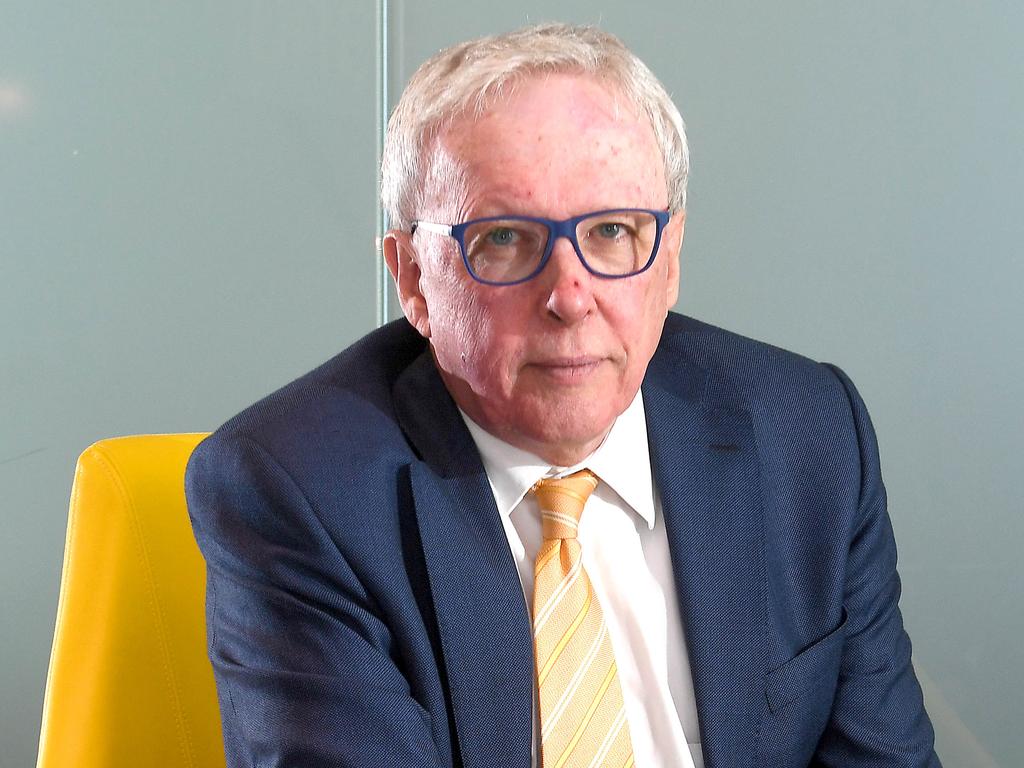Extraordinary expose of what Queensland doctors really think
In an extraordinary expose from the frontline, an Australian Medical Association Queensland survey of 677 doctors reveals medics fear that patients are at risk, some policies make no medical sense and doctors expertise and advice is being ignored.
QLD News
Don't miss out on the headlines from QLD News. Followed categories will be added to My News.
Queensland doctors have little or no faith in the Queensland Government’s health system and only three per cent say the state’s patients are in good hands.
In an eye-opening expose, an Australian Medical Association Queensland survey of 677 doctors reveals medics fear that patients are at risk from misdiagnoses and medical accidents, some policies make no medical sense and doctors’ expertise and advice is being ignored.
Pharmacies push for permission to treat patients
Pharmacy change needs to be prescribed right now
AMAQ vice president Dr Bav Manoharan said it was important to gauge the views of doctors on the state of health before people went to the polls on October 31.
“I wish I could say that the results of this poll have surprised me but doctors have felt ignored and watched the erosion of services for some time now. This survey sends a clear message to all political parties contesting the next State election about what Queensland patients need and deserve,” he said.
“Doctors believe appointing people with frontline health experience to key policy making roles in the public system is the top solution to improving patient care, followed by increased funding for primary and preventive care.
“AMAQ is calling on all political parties to lay out their visions for health care for Queensland, so voters can make an informed decision at the ballot box.
“Every Queenslander deserve equal access to quality health care,” the vice president said.

Dr Manoharan said many doctors feared a rise in misdiagnoses and medical mishaps if the current public health system was allowed to continue.
“We are concerned at the level in which some health practitioners are working outside of their scope,” he said.
“Nurse endoscopists for example - this was a trial that began in 2000 and is common practice in some hospitals.
“This kind of process was always carried out by a specialist or a general surgeon.
“Nurses are not able to remove any suspicious lesions putting patients at risk back on the waiting list.”
Dr Chris Perry, the AMAQ chief, said doctors have advised the government of the risks of testing people for COVID in retail outlets, and the working pharmacists themselves are overwhelmingly opposed to the trial on safety grounds and yet it is going ahead.
“The trial is backed by the Pharmacy Guild of Australia – a lobby group that represents a small number of wealthy pharmacy owners who benefit from increased traffic to their retail outlets – but it has been vehemently opposed by working pharmacists and the Pharmaceutical Society of Australia which has called for an immediate stop to the trial,” he said.
“It shows the State Government is totally out of touch with community expectations about its role to protect people’s health and is blatantly ignoring sound medical advice,” he said.

Australian Medical Association Federal President Dr Omar Khorshid has supported Dr Perry’s concerns, writing to Queensland Health Minister Steven Miles to warn him that COVID testing in pharmacies “is dangerous and poses unacceptable risks” to staff, customers and the wider community.
Dr Perry called on the State Government to invest more in existing COVID testing centres, rather than contracting out the important health measure to commercial enterprise.
“Fully equipped testing locations already exist with trained staff. We need to boost the number of these services and ensure there’s adequate supply of PPE such as head coverings, face shields, masks and gowns rather than encourage sick people to wander through shopping centres and retail outlets,” Dr Perry said.
Dr Manoharan said that 60 per cent of doctors in the survey states that Queensland Health ignored their advice in favour of other solutions to patient care, while a further 38 per cent said they believed the State Government made some sound decisions, ‘though there are some policies that don’t make medical sense’.
“More than 90 per cent of doctors surveyed said the State Government trial allowing pharmacists to diagnose people with urinary tract infections (UTIs) and prescribe antibiotics placed patients at a medium to extremely high risk. Many also noted the trial contradicts national and global efforts to reduce antimicrobial resistance. Pharmacists handing out antibiotics for possible urinary symptoms which could be caused by pelvic cancers or bladder stones, fragment patient care and lead to poor health outcomes for Queenslanders,” the deputy president said.

On the whole, the survey found 38 per cent of doctors had little or no faith in the public health system while 45 per cent said they had some faith, but had noticed a decline in quality and services over the past decade.
A Queensland Health spokesman said the state “has one of the best health systems in the world.”
“And while we always welcome feedback that might help us continue to improve, we understand this survey had a small number of respondents and it’s difficult to see the results as an accurate reflection of our workplaces,” a Queensland Health spokesman said.
“If the doctors surveyed (677) were all in the public health system where there are just over 10,000 doctors, that is just 6.7 per cent of all our doctors.
“If the doctors surveyed include general practitioners, that percentage will be significantly lower.”
DOCTORS’ DIAGNOSES
■ 4 per cent believe patients have access to quality care in reasonable time frames
■ 9 per cent think state’s health system is world class
■ 33 per cent say most patients receive bare minimum of care
■ 38 per cent say some health policies don’t make medical sense
■ 38 per cent have little or no faith in health system
■ 45 per cent have some faith in health system but say it’s on decline
■ 97 per cent unhappy with decisions on patient care
■ 90 per cent say patients at risk with pharmacy UTI treatment
■ 17 per cent say cost cutting and poor decisions have gutted public health
■ 21 per cent health care needs better leadership


